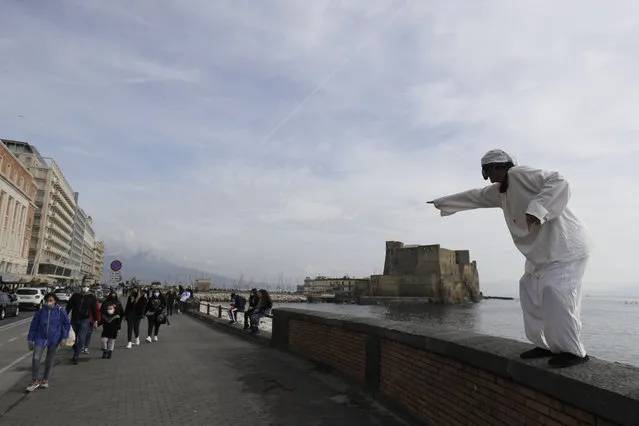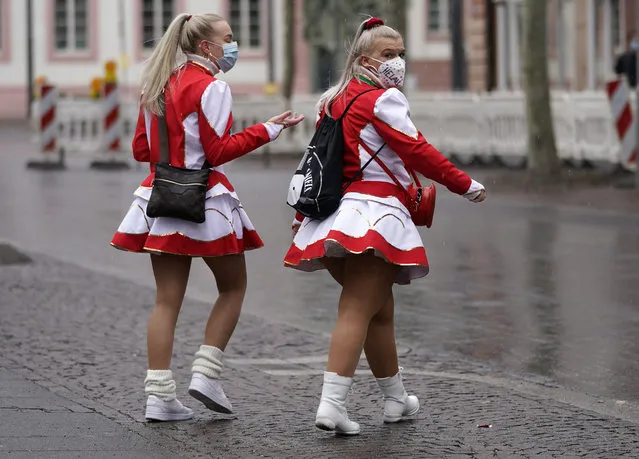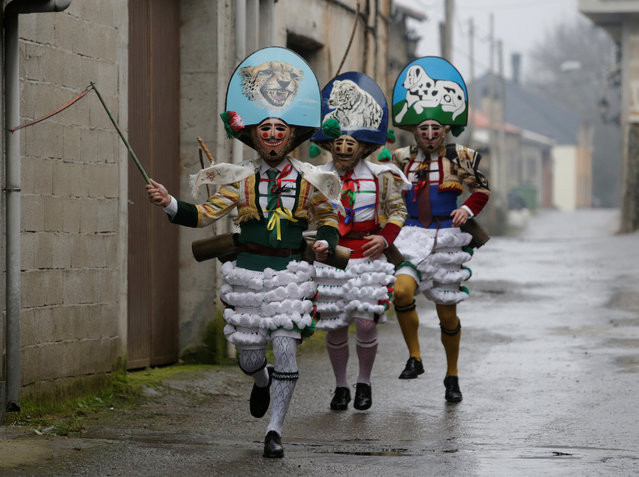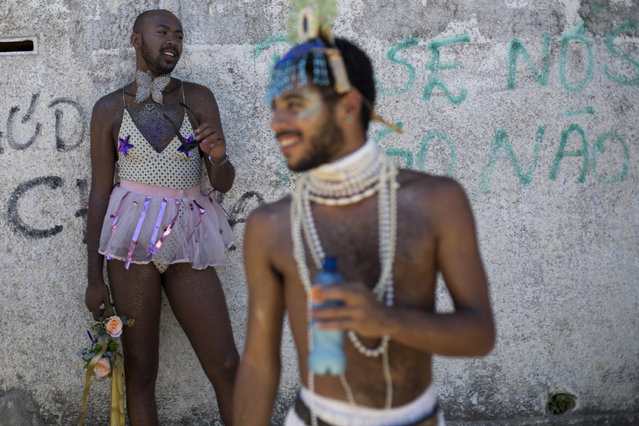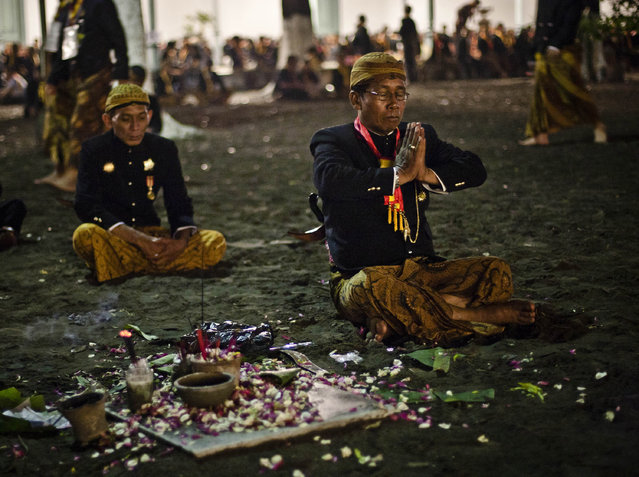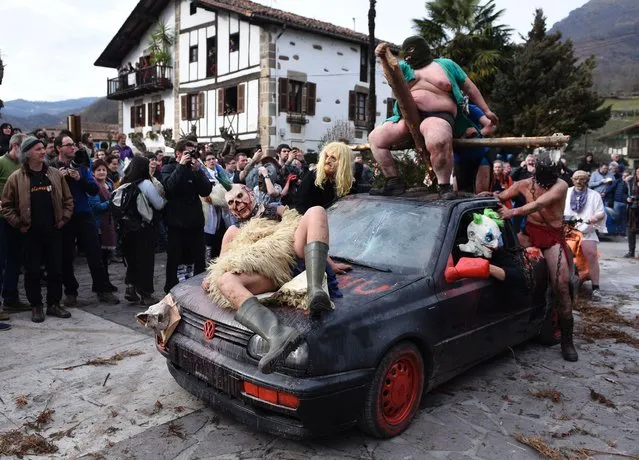
In this Saturday, February 16, 2019 photo, carnival revelers dressed as characters from the movie “La Casa de Papel” pose for a picture during the “Desliga da Justica” block party in Rio de Janeiro, Brazil. “Desliga” means in Portuguese to turn something off, and this street party is a parody of the Justice League. (Photo by Leo Correa/AP Photo)
24 Feb 2019 00:07:00,post received
0 comments

